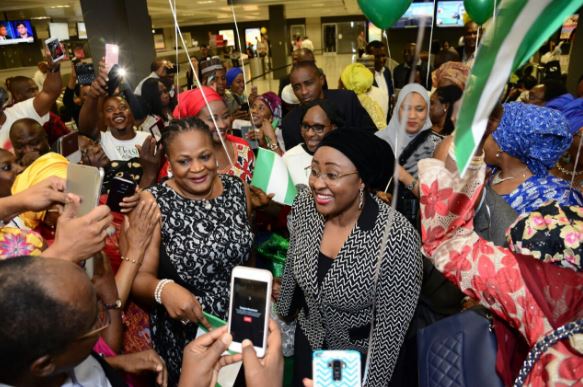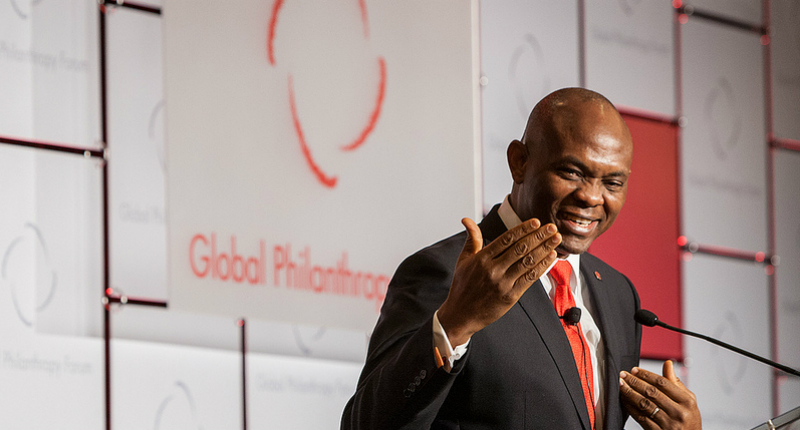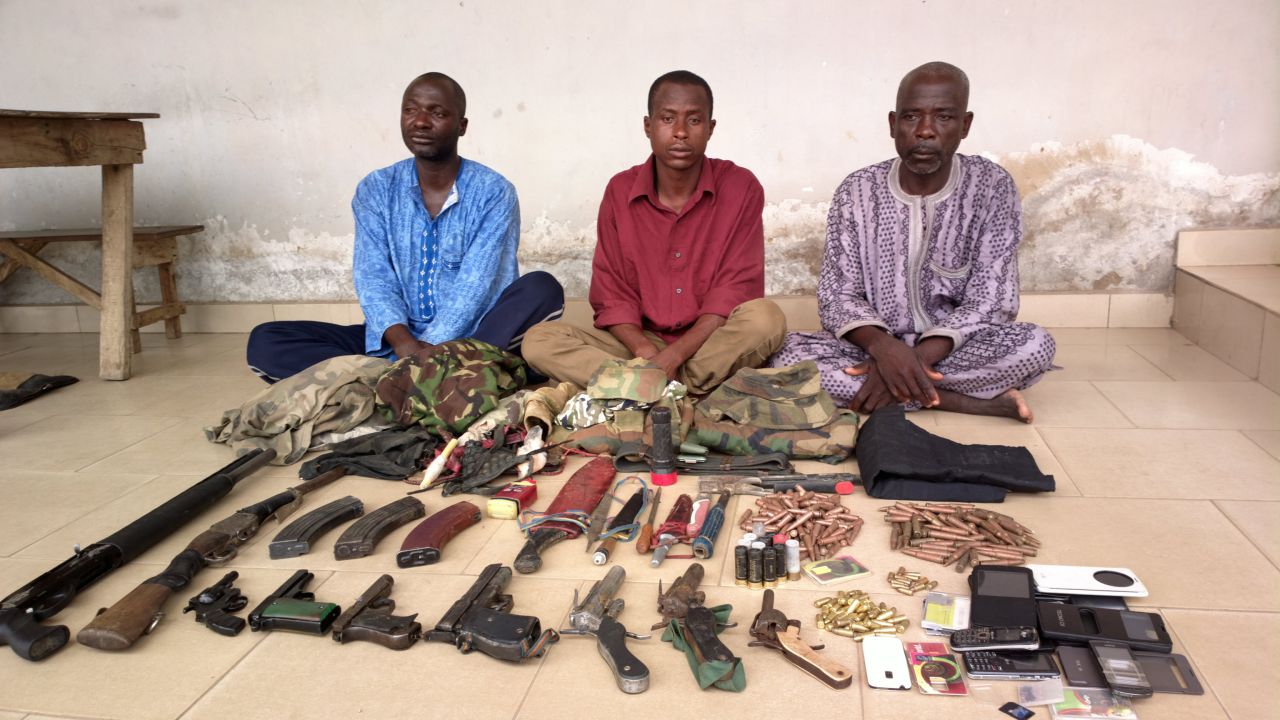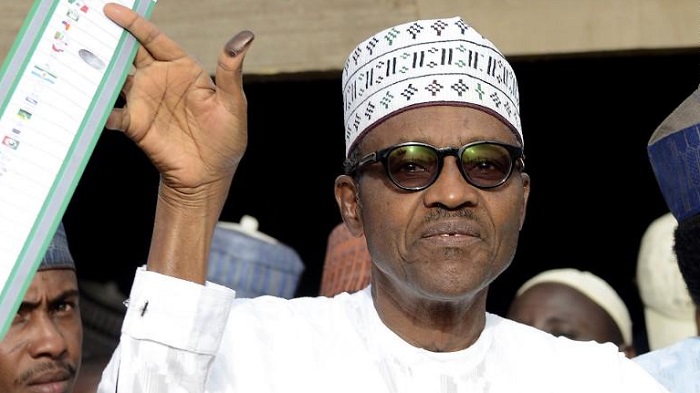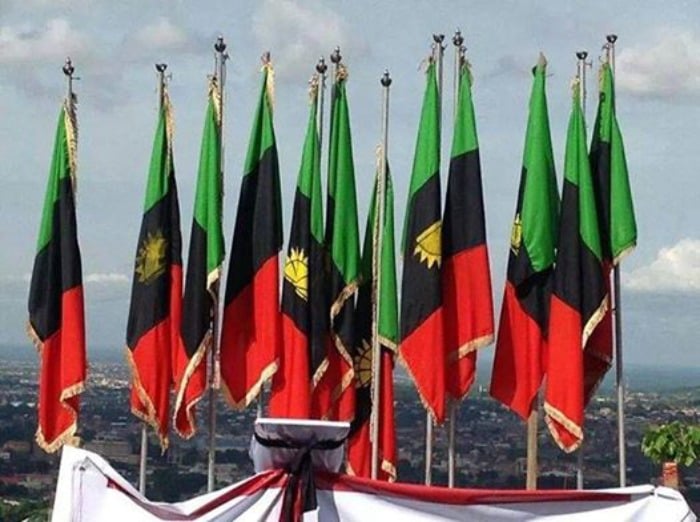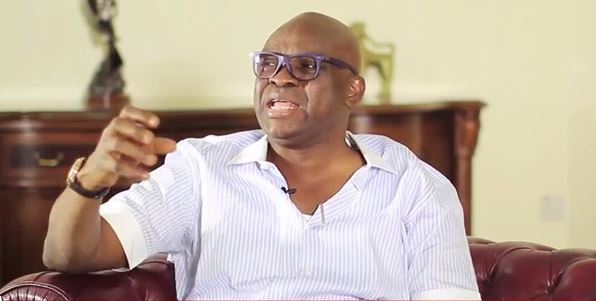Clearly, many Nigerians have been mesmerised by the “blood feud” brewing in the household of President Buhari, particularly between the President and his somewhat taciturn but now fire-spitting wife, Aisha.
The explosive interview Mrs. Buhari granted the BBC (Hausa) on the perceived deformities in her husband’s government, his less-than-inspiring effort to clean up the anomalies as well as the man’s widely adjudged “anti-feminist” response to his wife’s concerns has been a hot topic within and even beyond the country’s shores.
That said, the President’s wife has openly expressed her fears on the dangers that lie ahead should the President continue to conduct national and political affairs in the manner she had observed, and given the implications of such on the political future of President Buhari if he resolves to seek re-election in the 2019 presidential contest.
Since that outburst, not a few have affirmed that though the matter should have been privately impressed on the President and confined to the rooms in the house, it was in fact a glimpse into the burdens that Buhari would shoulder in his presidency.
Advertisement
But I think much as this situation places a massive weight on governance, it remains largely the president’s personal concern and his need to prepare a suitable ground for himself ahead of 2019.
Truthfully, such early preparation isn’t wrong in politics. But when that is being placed alongside other issues that border on the livelihood of the generality of Nigerians, vulnerable citizens especially, it becomes more than wrong.
It is quite instructive to note that the first lady’s outburst came at about the same time we got the heartwarming news of the release of 21 of the over 200 girls abducted in Chibok over two years ago. But the news of the first family’s fued didn’t let the country as a whole fully digest the much-awaited breakthrough in the quest to secure the release of the abducted girls.
Advertisement
Expectedly, Aisha had acknowledged the relative peace in the North-east of Nigeria, where the nefarious Boko Haram sect had taken over before now, as one of the achievements of her husband’s presidency in the BBC interview. She has also continued to demonstrate commitment through advocacy to the re-building of the region from the ruins brought upon it by the insurgency.
Evidently though, a lot more needs to be done towards bringing perpetual peace and sustainable development to the region. And this I believe is a difficult task that should remain in the front burner of the Buhari-led government, and one that is expected to take preeminence in the lists of the support Aisha can possibly offer her husband beyond the mere political manipulations geared towards strengthening political advantage.
This is even more telling when one is reminded that it was the failure of Jonathan’s government, Buhari’s predecessor, to stem the growing threats of insurgency before it got out of hands; and the embarrassing lethargy of same government that allowed the Boko Haram to easily capture and escape with over 200 girls from a school in Chibok, North-east of Nigeria, that largely contributed to the ouster of Jonathan by Buhari in the 2015 presidential election.
The Buhari government may at this time be basking in the euphoria of an effort that has been described as remarkable – the release of the 21 girls, the on-going negotiations for securing the release of the rest of the girls and improved action towards total elimination of Boko Haram – but the country still faces security concerns which can actually drown whatever achievement we have already.
Advertisement
For instance, on the girls that have just been released, the government typically has made promises to rehabilitate them through provision of necessary needs to improve their well-being and arrangements to return to school. While this may sound uplifting to hear, there are usually stumbling blocks when it comes to implementation, judging by precedents. Governments (past and present at various levels) are well known to be good at making pledges with little or no plan for effective delivery.
That trait came to the fore yet again in the story of the alleged abduction and forceful marriage of the teenage girl, Ese Oruru, by Yunusa Dahiru. Oruru’s parents have requested that the governments of Delta and Bayelsa states facilitate the release of their daughter, who has been in “protective custody” since the police took over her case. Their reason for the request is simple – Ese and her new baby, delivered in custody, are being kept in deplorable conditions.
Similarly, ongoing efforts at raising funds for the Chibok girls by President Buhari’s daughter, Hadiza Buhari-Bello, which has pitched Hadiza’s organisation against the famous #BringBackOurGirls group, suggests that the government had no plan in place for the return of the girls. While Hadiza’s step is quite credit-worthy, it underscores the utmost need to have a separate plan from that of the government which may never see the light of day.
It is high time the government realised that the art of terrorism is presently being peddled in the most dangerously ingenious ways. Vulnerable people like the young girls are now used to perpetrate evils and sell the heinous ideologies of terrorism.
Advertisement
Hence, the earlier we realise that those who have been held by Boko Haram will endure long and difficult process to rebuild their lives, the better several transformational interventions, which include unique academic programmes, are made for them to forestall the return to a life of crime.
This certainly takes priority over any other internal political wrangling that the first family wants to work out which, on the long run, would be to their own benefit.
Advertisement
Views expressed by contributors are strictly personal and not of TheCable.
Add a comment

